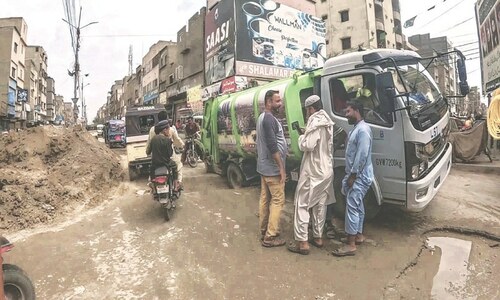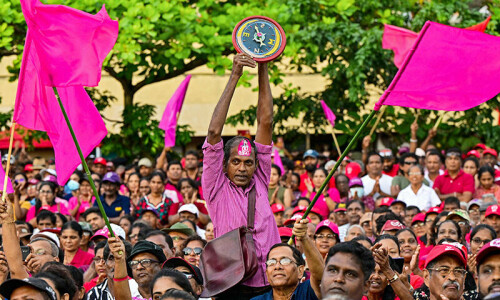KARACHI: While acquitting two appellants in a terrorism financing case, the Sindh High Court has questioned the conviction and sentences handed down by an antiterrorism court to them despite glaring inconsistencies in the case of prosecution.
A two-judge bench comprising Justice K. K. Agha and Justice Khadim Hussain Tunio also noted that the investigation of the case was also conducted poorly and the investigating officer had failed to discharge his duty.
The Counter-Terrorism Department had booked Mohammad Bin Shahzad and Rehan Ahmed in 2019 under the Anti-Terrorism Act (ATA), 1997 for looking after the affairs of a mosque and seminary in Surjani Town and collecting funds for the banned Jaish-e-Mohammad (JeM).
In August 2020, the ATC-XII had handed down 10-year imprisonment to them for fundraising for the purpose of terrorism and other sentences of imprisonment.
Both the convicts filed appeals in the SHC against the conviction order of the trial court and after hearing both the sides, the bench allowed their appeals and set aside the convictions.
In the verdict, the SHC observed: “This Court is left shocked to note that the trial court, despite noting the glaring inconsistencies in the prosecution case, proceeded to convict the appellants and sentence them for the maximum term as prescribed by the ATA on the basis of a prosecution case that hinged on doubtful recovery of funding registers, contents whereof were not even sent to the handwriting expert to ascertain if the same even belonged to the appellants or not.”
It further stated that the prosecution had miserably failed to establish any connection between the appellants and proscribed JeM.
“The learned trial court lost sight of the golden principle of benefit of doubt while holding grave illegalities in the due process of law to be ‘mere technicalities’ which it held could be ignored”, it added.
It is rather surprising to note that how poorly the investigation of the case was conducted, the bench said, adding that the IO not only failed to ascertain whether the visas issued to appellant Shahzad were for the purpose of any personal matter or to invest and bolster anti-Pakistan agenda in other countries.
The IO had failed to record the statements of two witnesses during his initial visit to the mosque despite admitting that they were present there and only recorded the statements when they favoured his investigation by disclosing the names of appellants, it added.
The order said the assumption would generally be that IO intentionally did not record the statements of both the witnesses so that he could later coerce them under fear of his power and make them depose in a way that would favour his investigation.
The bench further noted that to ascertain whether appellants collected any funds and to verify information in the funding books, the IO did not collect bank and mobile financing app’s transaction records, adding that the whole story of prosecution become doubtful after Shahzad’s father deposed that he had voluntarily handed over three passports to police and they returned two.
Published in Dawn, March 13th, 2022
















































Dear visitor, the comments section is undergoing an overhaul and will return soon.